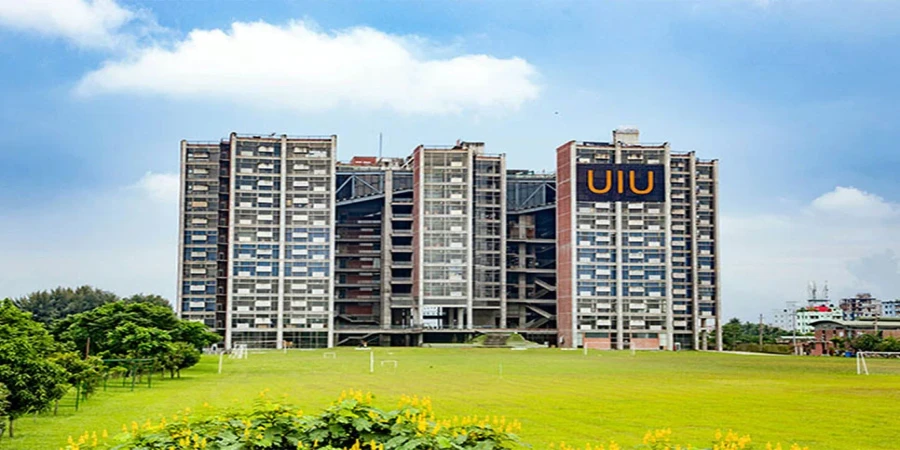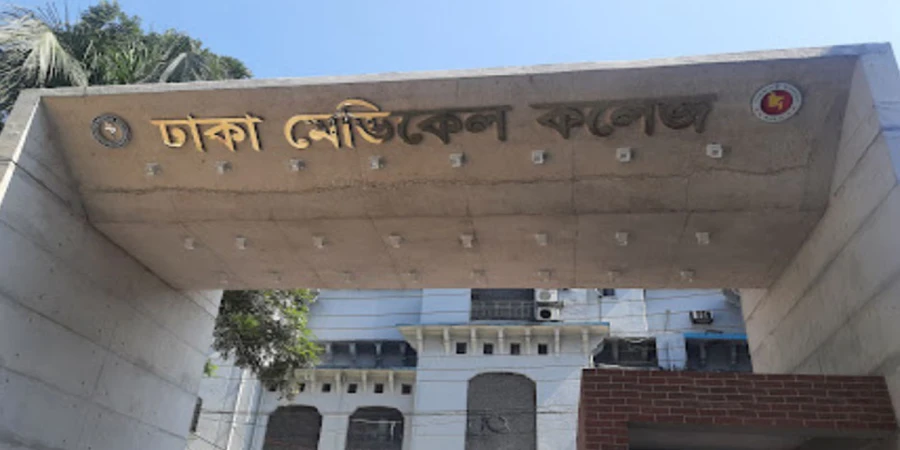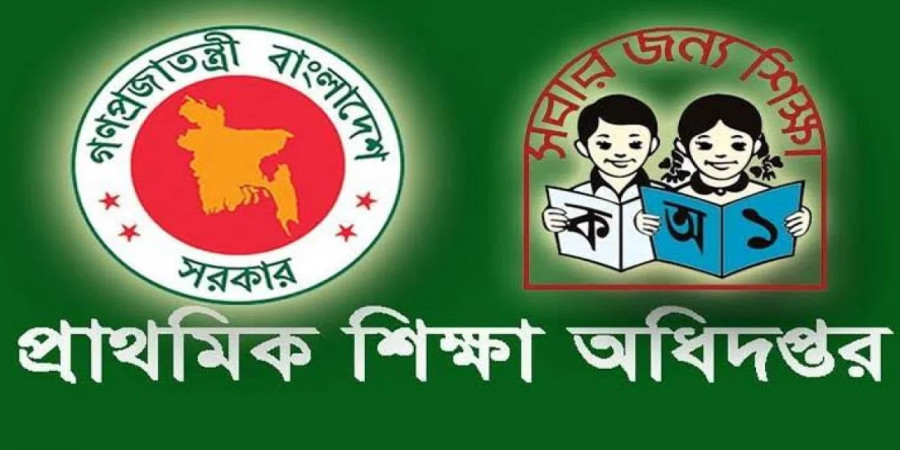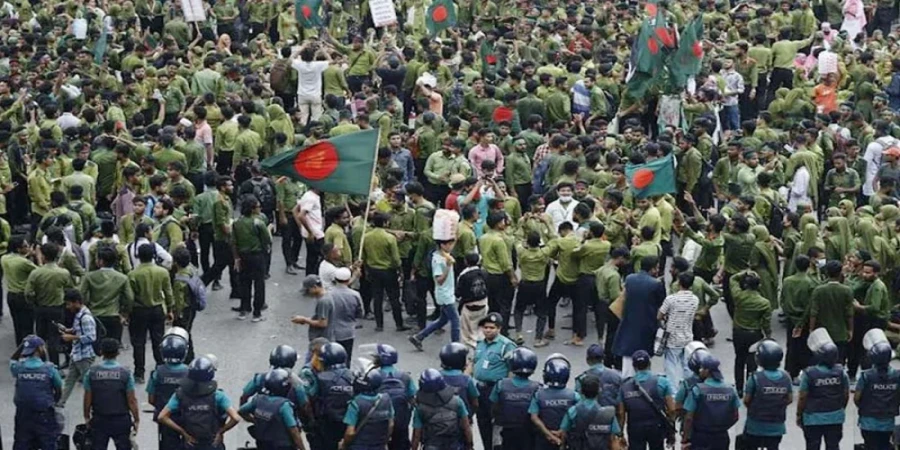
ছবি: Photo: Collected
After days of growing unrest and a blockade in the capital, UIU revokes disciplinary action against students as part of an administrative resolution to defuse tensions.
United International University (UIU), a prominent private university in Dhaka, has officially withdrawn the expulsion orders issued against a group of its students. The decision, announced by the university administration on Saturday night, came in the wake of sustained student protests and demands for institutional reforms.
The announcement was made through an official press release issued by UIU Registrar Dr. Md. Zulfiqur Rahman. According to the university’s Public Relations Director, Abu Sa-dat Md. Muntasir Billah, the decision was reached after a special administrative meeting where the authorities agreed to reverse the disciplinary actions previously taken against the students.
Those who had been permanently expelled will now be allowed to rejoin their academic activities starting from the ongoing Spring semester. Meanwhile, students who had been suspended for two semesters will be permitted to resume their classes from the upcoming Fall semester.
The administrative move came shortly after a major demonstration earlier in the day, when hundreds of students gathered near the capital’s Natunbazar area at around 8:00 AM. The protest resulted in a blockade of the road leading from Nadda to Badda, causing severe traffic congestion and leaving commuters stranded for hours. The demonstration focused on five core demands, centered around student rights, accountability, and broader systemic reforms within the private university sector.
The students' first and foremost demand was the unconditional reinstatement of all those expelled or suspended, whom they claimed had been unfairly penalized. In addition to seeking full compensation for the psychological and academic damage caused, the students demanded a transparent investigation and appropriate punishment for the university staff—students, teachers, and officials—allegedly involved in enforcing the expulsions.
Another key demand centered around longstanding grievances over what students described as a pattern of irregularities, mismanagement, and authoritarianism within the university. Protesters called for structural reforms to address these issues, including greater transparency in administrative procedures and decision-making processes.
Furthermore, the protesting students urged the government to establish an independent reform commission to oversee and regulate private universities across Bangladesh. They argued that such a body is essential to ensuring accountability, protecting student rights, and maintaining educational standards across the expanding private education sector.
Finally, the students called for the complete revocation of the 15 percent income tax imposed on private universities by the government. They argue that the tax burden ultimately affects students through rising tuition fees and reduced resources for academic development, disproportionately impacting families that make significant financial sacrifices to access higher education.
The protest, though peaceful in nature, reflected growing frustrations among private university students who feel increasingly alienated from the administrative decisions that affect their academic futures. Many of them expressed that the expulsions were not only unjust but part of a broader climate of repression within private institutions, where student voices are often ignored or penalized.
While the university administration did not publicly acknowledge wrongdoing, its decision to reverse the expulsions was seen by many as a concession in response to growing public pressure. The move has been cautiously welcomed by students and rights groups, who say it represents a step toward repairing the fractured relationship between students and university authorities.
Sources close to the university suggest that negotiations between student representatives and administration officials were ongoing behind the scenes throughout the day, ultimately leading to the announcement late Saturday evening. Though no mention has been made regarding the fulfillment of the remaining four demands, students say they are prepared to continue their advocacy through peaceful means until all of their concerns are addressed.
University insiders noted that the incident has exposed deep-rooted challenges in managing student relations and disciplinary actions within private universities. While UIU has a reputation for academic excellence, recent unrest suggests a growing gap between administrative decisions and student welfare, a problem that experts say may be systemic across the sector.
The government has yet to issue a formal response to the students’ broader demands, including the call to abolish the 15 percent tax on private universities and the formation of an oversight body. However, the issue is gaining traction within education policy circles, where there is increasing recognition of the need for comprehensive reform in the governance of private higher education institutions.
As classes resume, many students say they remain wary of the university’s long-term intentions but are hopeful that the latest development will open the door to more meaningful dialogue. Several student representatives emphasized the importance of continued engagement with the administration, not only to resolve individual grievances but to ensure broader institutional accountability and fairness.
In the meantime, parents, faculty members, and educational stakeholders are watching closely, viewing the incident as a litmus test for how Bangladesh’s private education system addresses dissent, transparency, and the rights of its students. Whether the withdrawal of expulsion orders marks the beginning of a new chapter or a temporary pause in ongoing unrest remains to be seen.
repoter





